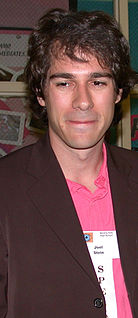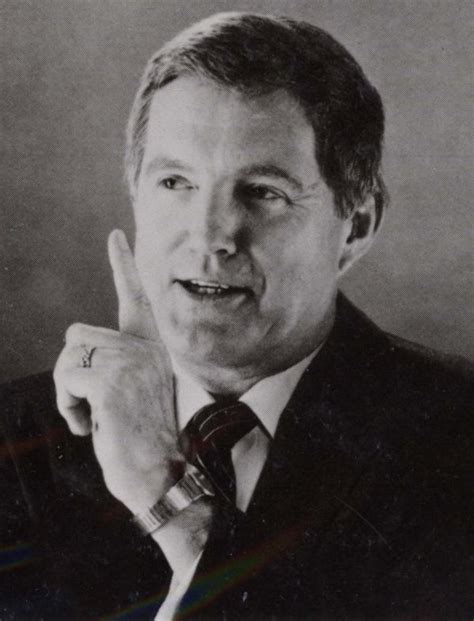A Quote by Joel Stein
I try to see what that person is thinking or feeling about that particular day. I just get more of a sense of what that person's like and hopefully it's more interesting than a normal conversation.
Related Quotes
One reason I can be more tolerant than most is that as a therapist I have the advantage of information about my patients that most people are not privy to. And I discover that we rarely if ever see the totality of another in ordinary social intercourse. When an individual appears mean and lazy, we are only seeing one part of the person, elicited by a particular set of circumstances on a particular day, and we do well to wait a while before concluding that what we see is the whole person.
I don't need to praise anything so justly famous as Frost's observation of and empathy with everything in Nature from a hornet to a hillside; and he has observed his own nature, one person's random or consequential chains of thoughts and feelings and perceptions, quite as well. (And this person, in the poems, is not the "alienated artist" cut off from everybody who isn't, yum-yum, another alienated artist; he is someone like normal people only more so - a normal person in the less common and more important sense of normal.)
We have to know cognitively what another mind is thinking and also empathically what they're feeling. And of course, in general, that's always the case, but it's often very generic. Like with Leo Cullum's doctor, it's just the fact that people in general are cruel and insensitive. But in the Barbara Smaller cartoon, we understand it's this particular person or this specific sub-class of person and her particular needs and desires, and that's different than a pun cartoon in which it's just semantic.
Knowledge and productivity are like compound interest. The more you know, the more you learn; the more you learn, the more you can do; the more you can do, the more the opportunity. I don`t want to give you a rate, but it is a very high rate. Given two people with exactly the same ability, the one person who manages day in and day out to get in one more hour of thinking will be tremendously more productive over a lifetime.
Some people spend their entire lives thinking about one particular famous person. They pick one person who's famous, and they dwell on him or her. They devote almost their entire consciousness to thinking about this person they've never even met, or maybe met once. If you ask any famous person about the kind of mail they get, you'll find that almost every one of them has at least one person who's obsessed with them and writes constantly. It feels so strange to think that someone is spending their whole time thinking about you.
Opportunity beckons more surely when misfortune comes upon a person than it ever does when that person is riding the crest of a wave of success. It sharpens a person's wits, if that person will let it, enabling him or her to see more clearly and evaluate situations with a more knowledgeable judgment.
Learning to explain phenomena such that one continues to be fascinated by the failure of one's explanations creates a continuing cycle of thinking, that is the crux of intelligence. It isn't that one person knows more than another, then. In as sense, it is important to know less than the next person, or at least to be certain of less, thus enabling more curiosity and less explaining away because one has again encountered a well-known phenomenon. The less you know the more you can find out about, and finding out for oneself is what intelligence is all about.
When men sit around and talk, they are very competitive. One person will tell an anecdote and the next person will try to top that. When you get six women together, they share a lot more. They will be far more interested in what the other person has to say. The conservation is more interactive and less about individually showing off.
Hopefully the person I'm trying to create is just a funny, dour, evil side of myself that has no other way to express itself. I don't model it after anyone in particular. Who would be like that? Who? I wouldn't want to meet that person. I wouldn't want to be interviewed by that person, I can tell you that.
But that's always the way; it don't make no difference whether you do right or wrong, a person's conscience ain't got no sense, and just goes for him anyway. If I had a yaller dog that didn't know no more than a person's conscience does I would pison him. It takes up more room than all the rest of a person's insides, and yet ain't no good, nohow.

































